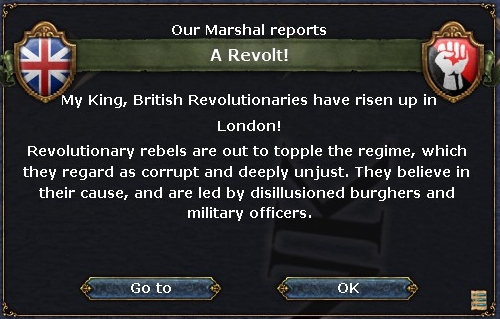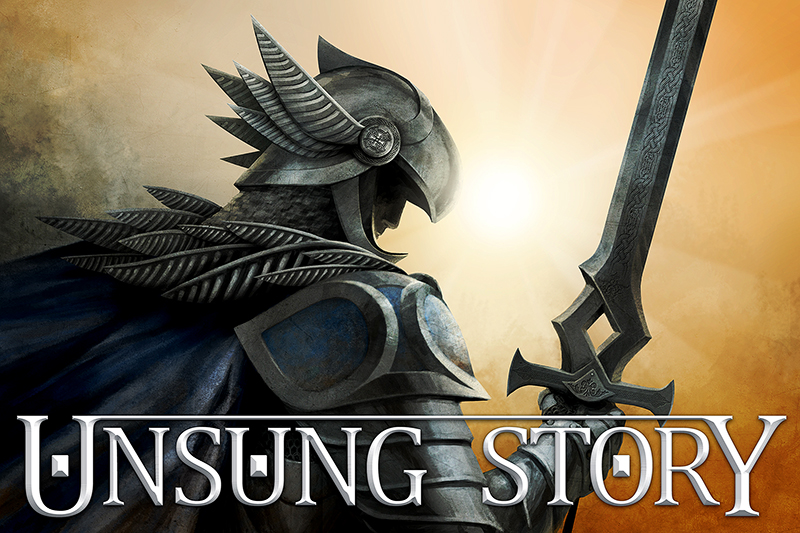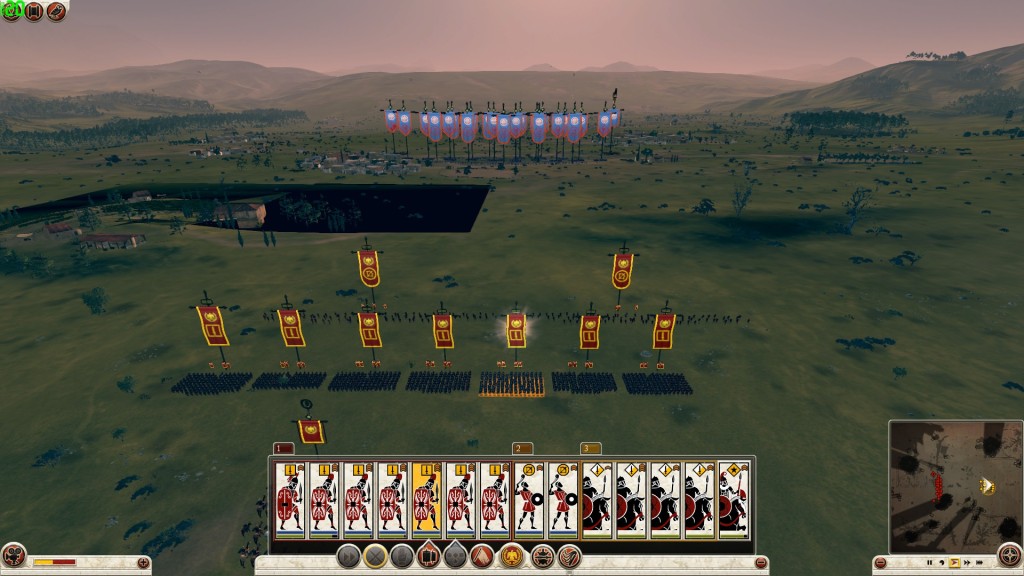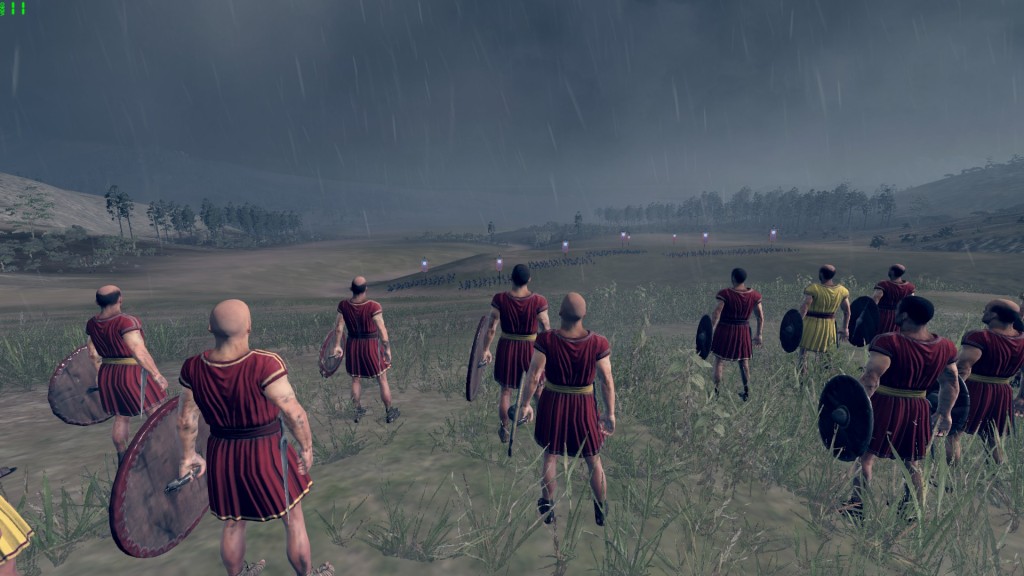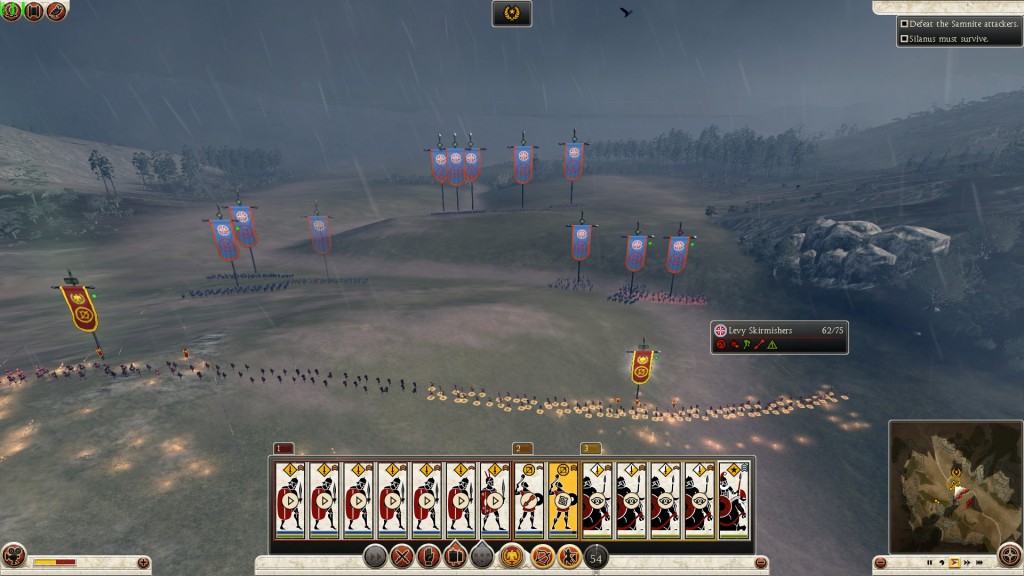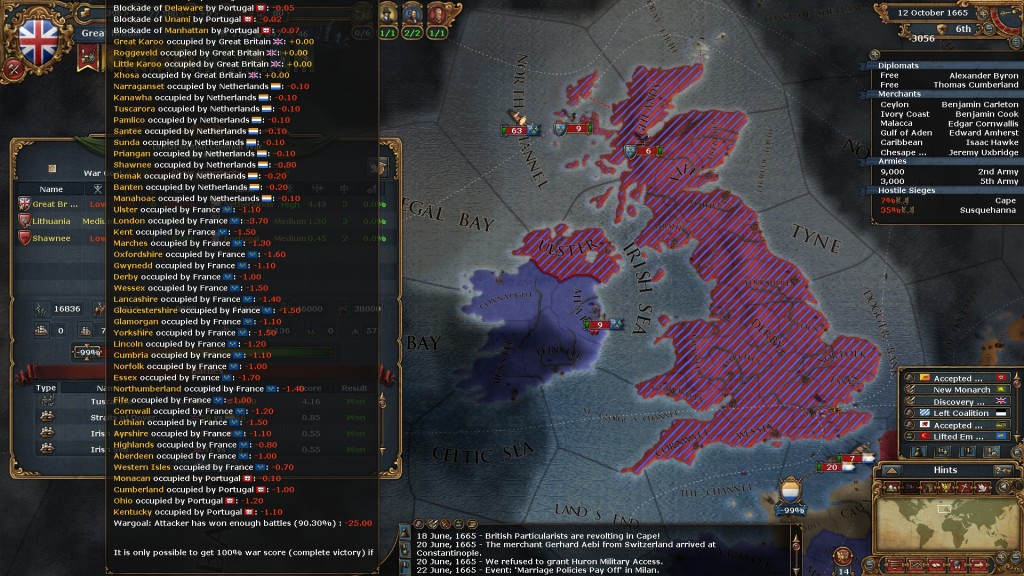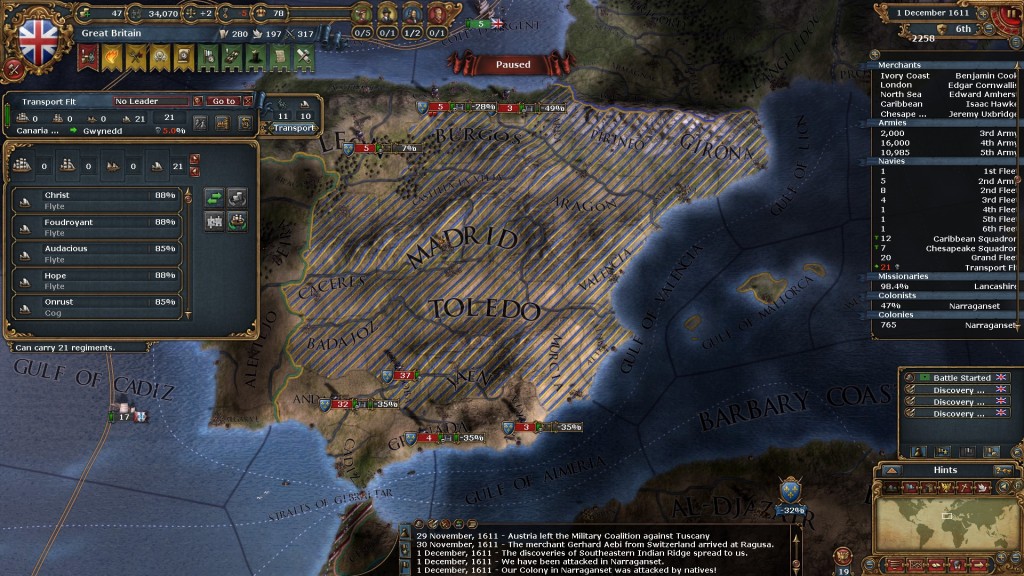Paradox Development Studio’s Europa Universalis IV is a game about trade-offs, and it is all the better for it.
Month: September 2013
The World That May Have Been, a Europa Universalis IV Let’s Play – Part 5 (FINAL): Bend with the Wind
If you walk around London today, you will still find monuments to the war heroes of the 18th century, and cross streets named after the ministers who led Britain to victory over France and Portugal and the Dutch. But from a modern perspective, what stands out is how much blood was shed for so little effect. When the century opened, Britain, France, Portugal and Spain were the foremost powers of western Europe; and a hundred years later that had not changed. The true change of the period occurred inside borders, not between them.
Clippings – 21 September 2013
Very big news this week! One of my favourite game creators, Yasumi Matsuno, is collaborating with mobile games studio Playdek to create a tactical RPG named Unsung Story: Tale of the Guardians. Matsuno is the man behind two of my favourite games, Final Fantasy Tactics and Tactics Ogre, and it sounds as though Unsung Story will be along the same lines: Matsuno is promising a “deep and detailed” world, with nine warring kingdoms and multiple stories. Here is a good interview with US Gamer. A spin-off card game designed by Chris Boelinger will come out first, in 2014; so far no release date has been set for the TRPG itself.
In other news, Kotaku has posted a five-minute gameplay video of Ubisoft JRPG Child of Light, and The Escapist has interviewed XCOM: Enemy Within designer Ananda Gupta (I’ve linked to page 2, which has the more interesting gameplay details).
Lastly, if you have a minute to spare, a site named Hardcore Gaming 101 has some interesting retrospectives on old games. Did you know that in 1996, there was a Super Famicom game that let you create your own spells by mixing and matching incantations?
Unsung Story image taken from Playdek website.
Musical Tuesday: “Dune Variation” (Dune), composed by Stephane Picq
For this week’s theme, I present another blast from the past — a piece from the 1992 Dune adventure game that preceded Westwood’s far-better known Dune 2. Specifically, I’ve presented two versions. The first is the in-game version; the second is the version from the “Spice Opera” CD. The first couple of minutes of the CD version are a rather dull lead-in, so I’d advise you skip to 1:55, but the rest of the song more than makes up for it. It’s a lovely, otherworldly piece that always makes me think of Arrakis, and wind howling in the desert, and the wonders that Frank Herbert conjured up almost 50 years ago. Enjoy!
Total War: Rome II – Prologue Impressions
My design analysis of Rome II, the Total War series, and what makes a good 4X game is now up! You can find it here.
Total War: Rome II has been this year’s highest-profile strategy release, but its initial launch was dogged by reports of bugs, technical glitches, and AI failings. Since then it’s received several significant patches, and last night I finished its prologue chapter (which begins as a scripted tutorial, but eventually broadens into freeform strategy). Here are my initial observations:
Technical
* I’ve encountered only one significant glitch, but it is both frequent and irksome: large black panels appearing instead of terrain, on both the campaign and battle (see below) maps. As I write this I’m downloading a driver update; hopefully that’ll fix the problem. (UPDATE: well, that didn’t work — my computer did not like the ATI beta drivers I installed. Hopefully either CA or AMD will address this issue soon.)
Graphics
* It took me a fair bit of fiddling, but I think I’ve found an acceptable compromise between performance and appearance. (For context, my machine is 3 years old, but still meets Rome 2’s recommended specs.) A picture is worth 1,000 words, so here are two of my nicest screenshots so far:
Clippings – 12 September 2013
- Ubisoft has now released a pretty-looking trailer for Child of Light, the sidescrolling JRPG I mentioned a few weeks back. Here is a Gamasutra interview with developer Patrick Plourde.
- Did you know there was an abortive Mad Max FMV game, all the way back in the 1980s? IGN has details.
The World That May Have Been, a Europa Universalis IV Let’s Play – Part 4: The Death and Rebirth of the British Empire
In 1665, Great Britain lay in ruins, her navy and trade fleets sunk, her cities occupied by French soldiers. It was the culmination of a series of unsuccessful wars waged throughout the 17th century, and as His Britannic Majesty’s hangdog envoys filed into the negotiating room, it was in doubt whether Britain would even survive. Previous wars had seen Wales, Cornwall, Northumberland lost, albeit temporarily. Could her victorious enemies even force her to give up Scotland?
The troubles had begun in the year 1600, when Great Britain had barely found its feet after the last century’s Wars of Religion. Decades earlier, Catholic rebels had not just wrested Ireland from the British crown; they had pledged their fealty to France. For Britain’s king, Octavius I, this was intolerable. His plan seemed foolproof: the British fleet would keep the French bottled up in harbour, Britain’s Austrian and Spanish allies would keep the French army busy on the European mainland, and Britain’s own modest army could seize an undefended Ireland. What could go wrong?
As it turned out, plenty. Distracted by rivals closer to home, the Austrians soon signed peace with France. The French demolished the Spanish army, and occupied Spain. Britain in turn occupied Ireland, but compared to the victories the French had racked up on the continent, that mattered little. The war settled into stalemate – the French fleet unable to match the British, the British army unable to match the French – and it could have dragged on forever.
(If this were a normal war Spain would have separately capitulated, but Spain and I were in a coalition war, in which individual coalition members can’t sign separate peace treaties. This rule seems a little odd – after all, if Napoleon could pick off coalition members, why can’t we?)
Clippings – 4 September 2013
- Total War: Rome 2 is now out; here is a roundup of the early reviews. The reports of bugs and AI flaws are disheartening, especially after the polished Shogun 2, but I haven’t picked up the game yet and hence, haven’t been able to judge for myself. If you’ve played it, what do you think?
- The role of dopamine in how we react to games.
- An interesting review of Wii U game Pikmin 3, which characterises it as an anti-war exercise.
Musical Monday: “The Stonemasons” (Europa Universalis IV), composed by Andreas Waldetoft
This week’s song, which I’m pretty sure is a remix of the Europa Universalis III theme, is perhaps my favourite from EU4. There is war in the game, and there was war in this period in history – lots of it! – but there was also trade, culture, and splendour, and this song feels like an expression of the latter. Enjoy!
